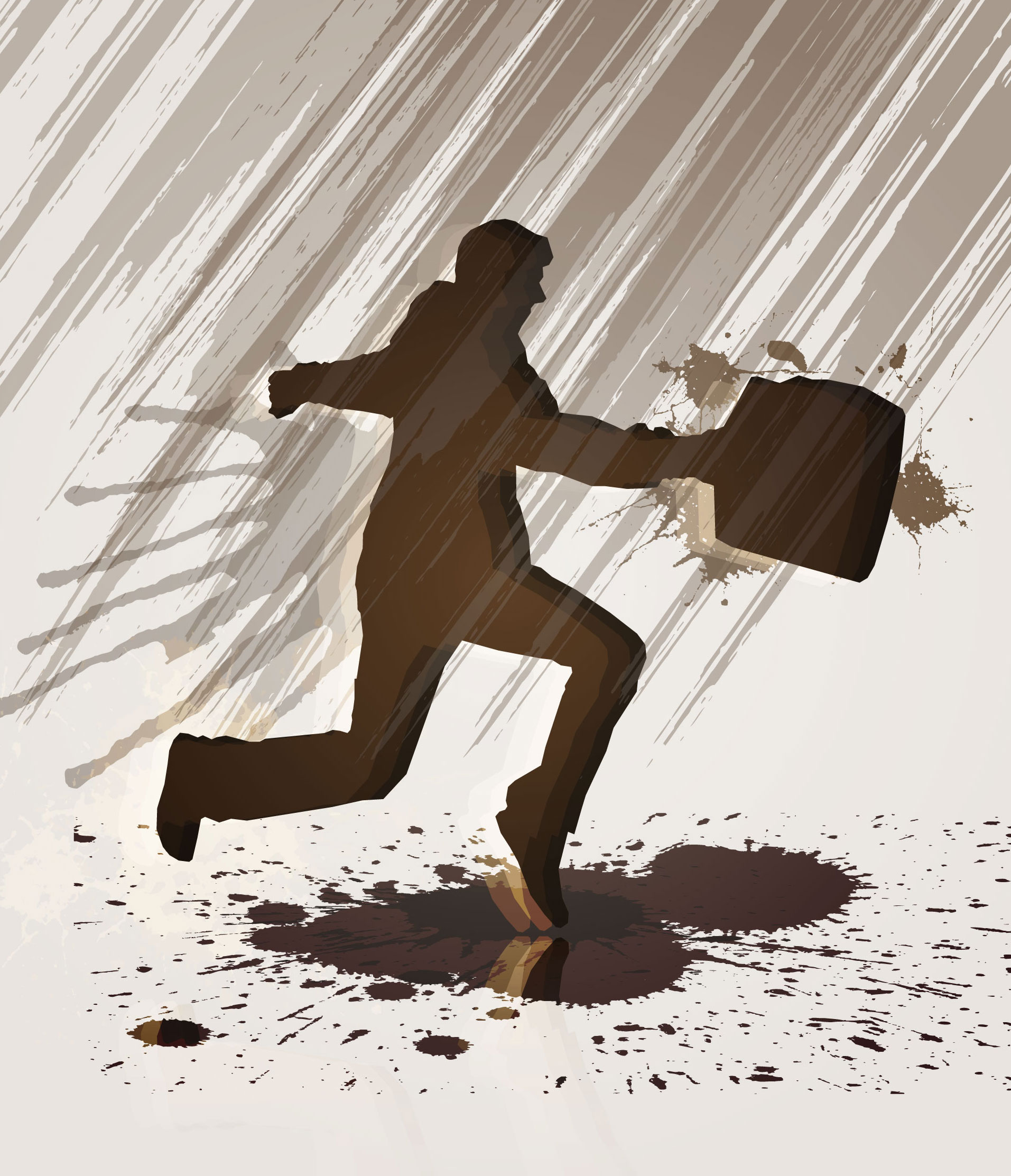When It's Raining, Should You Walk or Run?

Get the world’s most fascinating discoveries delivered straight to your inbox.
You are now subscribed
Your newsletter sign-up was successful
Want to add more newsletters?

Delivered Daily
Daily Newsletter
Sign up for the latest discoveries, groundbreaking research and fascinating breakthroughs that impact you and the wider world direct to your inbox.

Once a week
Life's Little Mysteries
Feed your curiosity with an exclusive mystery every week, solved with science and delivered direct to your inbox before it's seen anywhere else.

Once a week
How It Works
Sign up to our free science & technology newsletter for your weekly fix of fascinating articles, quick quizzes, amazing images, and more

Delivered daily
Space.com Newsletter
Breaking space news, the latest updates on rocket launches, skywatching events and more!

Once a month
Watch This Space
Sign up to our monthly entertainment newsletter to keep up with all our coverage of the latest sci-fi and space movies, tv shows, games and books.

Once a week
Night Sky This Week
Discover this week's must-see night sky events, moon phases, and stunning astrophotos. Sign up for our skywatching newsletter and explore the universe with us!
Join the club
Get full access to premium articles, exclusive features and a growing list of member rewards.
When you're caught in a downpour with no umbrella, should you run or walk? Running will get you out of the rain faster, but at the risk of encountering more drops along the way — and therein lies the dilemma. Now, science gives the go-ahead: in most cases, run.
Running as fast as you can is usually the best way to minimize wetness, according to Franco Bocci, a professor of engineering at the University of Brescia in Italy. Reporting in the European Journal of Physics, Bocci has shown that the optimal travel speed varies depending on how thin you are, the wind speed, raindrop size and the angle between your path and the wind direction. Certain combinations of these factors set an optimal travel speed, which may occasionally be slower than a flat-out sprint.
However, in a pinch, just go for it.
"Let's say that in general, the best thing is to run, as fast as you can — not always, but in general," Bocci told BBC News. "If you're really thin, it's more probable that there will be an optimal speed. Otherwise, it's better to run fast."
There are a few easy-to-identify exceptions worth remembering. If the wind is blowing in the direction you're traveling, attempt to jog at a speed equal to the wind speed. That's the pace at which you feel the least wind (and rain) smacking against you. [Why Does a Breeze Feel Cool?]
If the wind is hitting your back at an angle, jog a little faster than you think it's blowing. (The larger the angle, the more you should hustle.)
Bocci's calculations follow a long tradition of physicists attempting to address the complex problem of optimal travel strategies during rainfall. Whereas past efforts have tended to simplify the problem, and consequently, have produced simple answers, Bocci says his work reveals how complicated the running versus walking dilemma really is — and he says the answer will become more complicated the more factors physicists take into account.
Get the world’s most fascinating discoveries delivered straight to your inbox.
But as far as you're concerned, run, don't walk, to the nearest cover. Or, carry an umbrella.
Follow Natalie Wolchover on Twitter @nattyover or Life's Little Mysteries @llmysteries. We're also on Facebook & Google+.
Natalie Wolchover was a staff writer for Live Science from 2010 to 2012 and is currently a senior physics writer and editor for Quanta Magazine. She holds a bachelor's degree in physics from Tufts University and has studied physics at the University of California, Berkeley. Along with the staff of Quanta, Wolchover won the 2022 Pulitzer Prize for explanatory writing for her work on the building of the James Webb Space Telescope. Her work has also appeared in the The Best American Science and Nature Writing and The Best Writing on Mathematics, Nature, The New Yorker and Popular Science. She was the 2016 winner of the Evert Clark/Seth Payne Award, an annual prize for young science journalists, as well as the winner of the 2017 Science Communication Award for the American Institute of Physics.
 Live Science Plus
Live Science Plus












